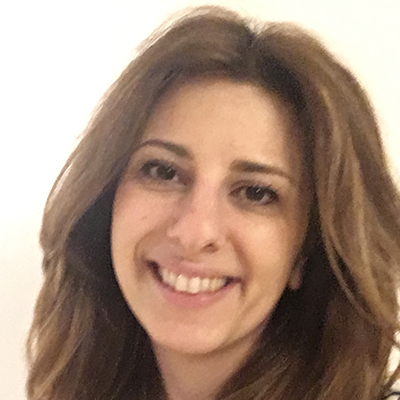According to the World Bank more than a billion people worldwide, or 15 per cent of the world’s population, live with a form of disability. It is estimated that 80 per cent live in low- and middle-income countries (LMICs). The World Health Organisation also estimates that around 90 per cent of persons with disabilities do not have access to the assistive technologies (AT) they need. Mobile phones, and smartphones in particular, can be a life-changing assistive technology. Mobiles provide a cost-effective tool for persons with disabilities to cluster together multiple assistive technologies in a single device, tailored to their needs. However, persons with disabilities are less likely than those without disabilities to have access to mobile phones.
In some countries, persons with disabilities are 47 per cent less likely to own a mobile than persons without disabilities. Even when persons with disabilities do own a mobile, other barriers can prevent them from gaining the full benefit from mobile-related content and services.
To identify and support the scaling of innovative solutions to increase the digital inclusion of persons with disabilities, the GSMA Innovation Fund for Assistive Tech was launched in September 2020. The Innovation Fund will support start-ups and SMEs in Africa and Asia, tackling key barriers such as affordability, access, relevance of content, knowledge and skills, as well as safety and security. This has become increasingly important in the context of the COVID-19 pandemic, which has intensified the world’s reliance on the internet and the urgency of identifying innovative approaches to address the barriers to digital inclusion for all.
A total of 350 applications were received from 31 countries across Asia and Africa. Of these, 63 were selected as the top pitches. From these top pitches, 18 applicants were invited to submit a full proposal and 15 were presented for discussion by a panel of AT and digital experts. The final list of grantees will be announced mid-August.
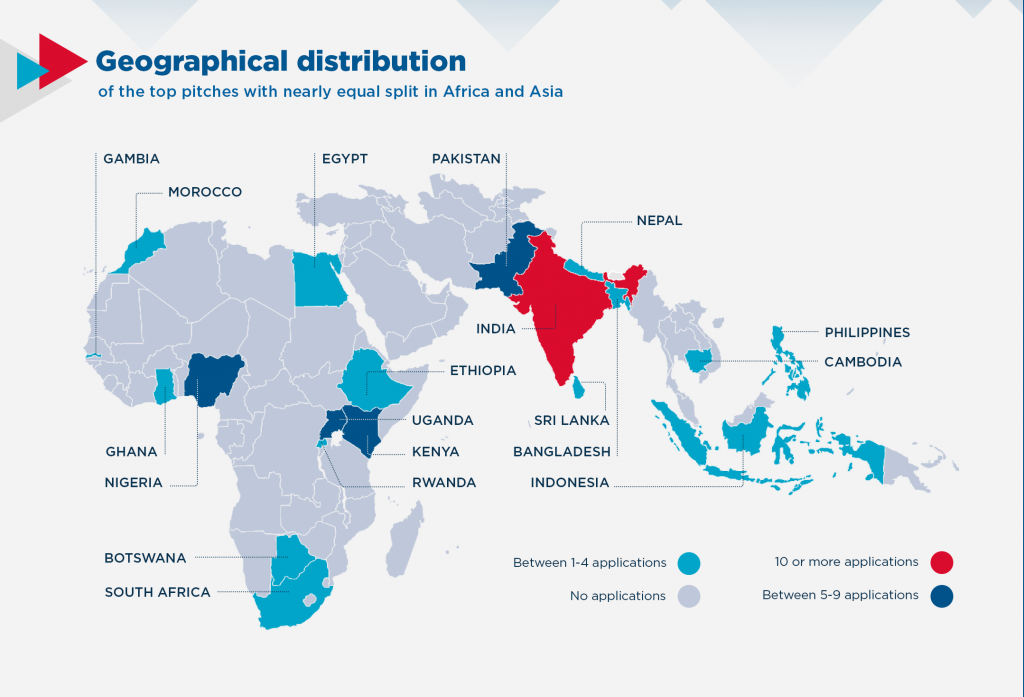
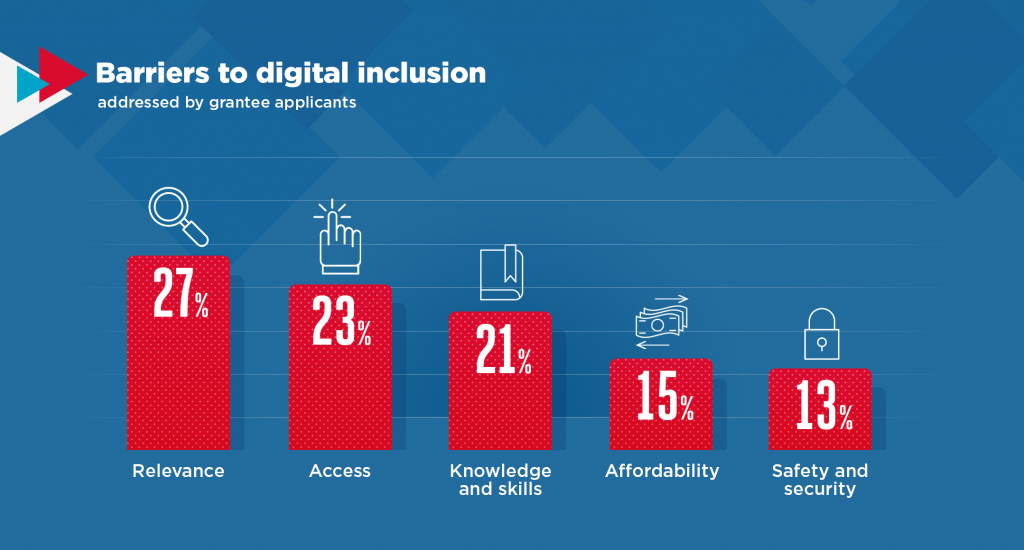
Most of the top 63 pitches aimed to address multiple barriers to digital inclusion, with a prominent focus on making content more relevant for persons with disabilities (27 per cent), followed by innovations to improve access (23 per cent).
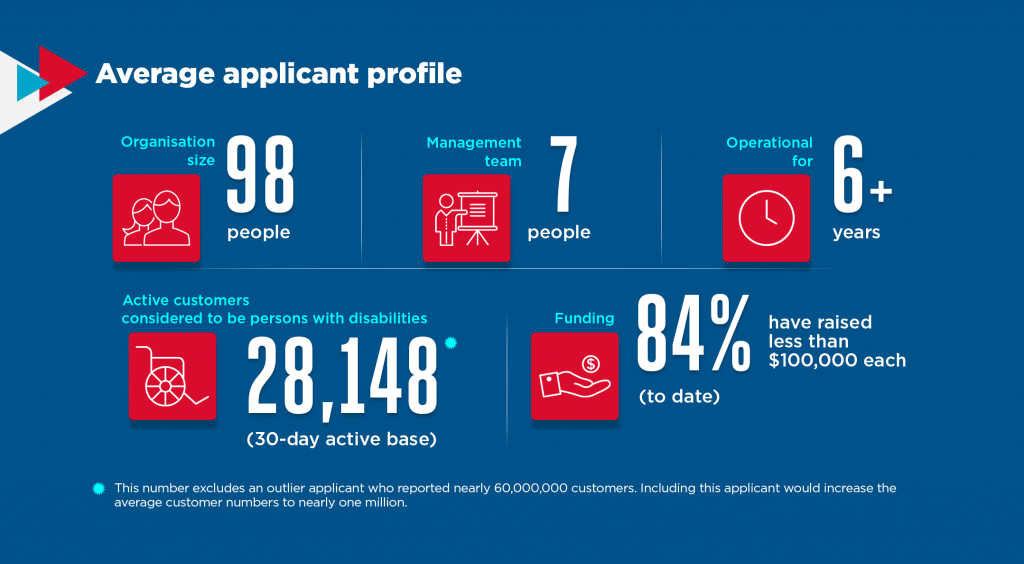
The Fund received applications from start-ups that ranged from early stage to mature, with an average of six years of operations. The sizes of the organisations varied from two to 1,198 with an average management team size of seven. Some applicants had prior experience of raising investment and, in some cases, donor grants. However, applicants were very limited in the amount they were able to raise with 84 per cent raising less than USD100,000 to date. Solutions included emerging technologies such as AI and haptic feedback (use of touch feedback to the end user) and represented relevant mobile-related sectors such as mHealth, EdTech, e-commerce and FinTech.
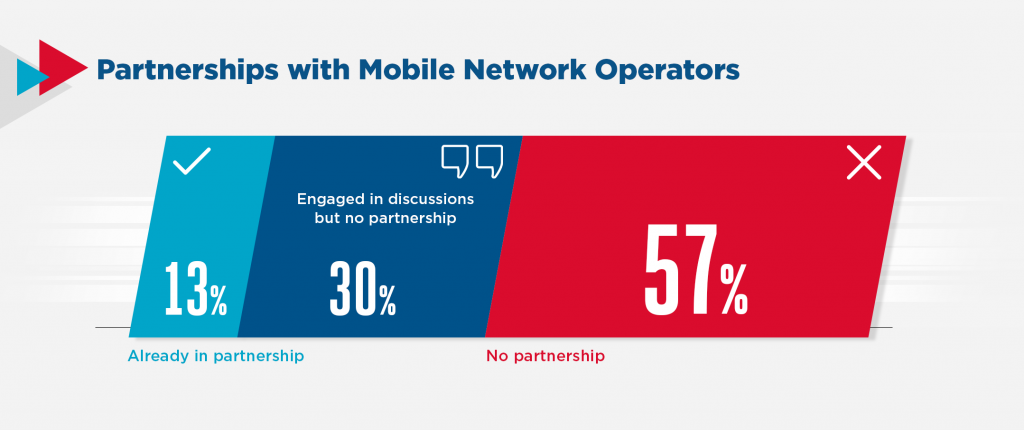
While many sectors rely on partnerships to grow, in the Assistive Tech sector partnerships with mobile operators are still at an exploratory stage. Of the top pitches, only 13 per cent were already in a partnership with a mobile operator in the relevant markets. While nearly one third of the top pitches were engaged in discussions, over half had not yet connected with a mobile operator. This highlights a key role for the GSMA Innovation Fund for Assistive Tech to play in fostering partnership between grantees and MNOs.
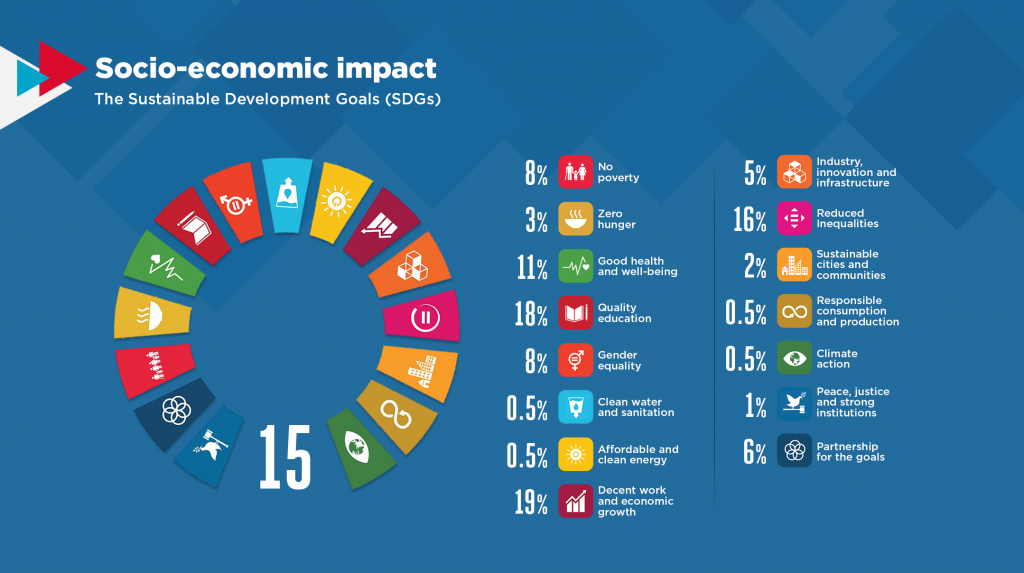
The Sustainable Development Goals (SDGs), adopted by the mobile industry in 2016, universally call to action to end poverty, protect the planet and ensure peace and prosperity by 2030.
The top 63 pitches collectively address 15 of the 17 SDGs. Nearly a fifth (19 per cent) are aiming to improve employment and generate economic growth (SDG 8), 18 per cent intend to provide improved access to education (SDG 4) and 16 per cent aim to improve equality (SDG 10).
In March 2021, 15 finalists were presented to an independent fund panel consisting of experts from organisations in the public and private sectors with expertise in investment, disability advocacy, gender, mobile technology and development. Please refer to our website and social media channels for the announcement of the winning organisations in the coming weeks!



